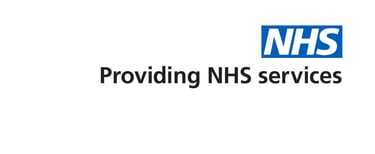Hayfever: Causes, Symptoms, and Effective Relief Strategies
Struggling with hayfever? As pollen levels rise in the UK, many people experience sneezing, itchy eyes, and congestion. This blog explores the causes of hayfever, common symptoms, and the best treatments—from antihistamines to lifestyle tips—to help you manage your allergies effectively. Discover how to stay one step ahead of hayfever and enjoy the warmer months with ease!
Chen Xin Ang
3/23/20252 min read


Understanding Hayfever in the UK: Symptoms, Causes, and Relief
As the warmer months approach, many people across the UK find themselves struggling with hayfever, a common allergic reaction to pollen. While hayfever can range from mild irritation to severe discomfort, understanding its causes, symptoms, and treatments can help sufferers manage the condition effectively.
What is Hayfever?
Hayfever, also known as seasonal allergic rhinitis, is an allergic reaction to pollen from trees, grasses, and weeds. It occurs when the immune system mistakenly identifies pollen as a harmful substance, triggering an inflammatory response.
Common Symptoms of Hayfever
Hayfever symptoms can vary in severity and may include:
Sneezing and runny nose
Itchy, red, or watery eyes
Nasal congestion
Itchy throat, mouth, or ears
Coughing
Fatigue due to disturbed sleep
Worsening of asthma symptoms (for asthma sufferers)
When is Hayfever Season in the UK?
The severity and timing of hayfever depend on the type of pollen a person is allergic to:
Tree pollen – February to June
Grass pollen – May to July (the most common cause of hayfever)
Weed pollen – June to September
How to Manage Hayfever Symptoms
While there is no cure for hayfever, various treatments and preventive measures can help reduce symptoms:
1. Over-the-Counter Medications
Antihistamines – Help relieve sneezing, itching, and runny nose (e.g., loratadine, cetirizine, fexofenadine)
Nasal sprays – Reduce inflammation and nasal congestion (e.g., steroid nasal sprays like beclometasone)
Eye drops – Help soothe itchy, red, or watery eyes
2. Lifestyle Tips to Reduce Exposure
Monitor pollen forecasts and stay indoors when pollen levels are high
Keep windows and doors closed to prevent pollen from entering your home
Wear sunglasses to protect your eyes from pollen
Shower and change clothes after being outdoors to remove pollen from your skin and hair
Use a pollen filter in your car and vacuum cleaner
3. Prescription Treatments
For severe hayfever cases, a doctor or pharmacist may recommend stronger medications, such as prescription antihistamines or immunotherapy (allergy shots or tablets) for long-term relief.
Visit Your Local Pharmacy for Hayfever Relief
If hayfever symptoms are affecting your daily life, your local pharmacy can provide expert advice and recommend the best treatments for your needs. Many pharmacies offer prescription-strength antihistamines and nasal sprays without needing a GP appointment.
Conclusion
Hayfever can be frustrating, but with the right approach, it can be managed effectively. By understanding the condition, taking preventive measures, and using appropriate treatments, you can enjoy the warmer months with minimal discomfort.
If you need relief from hayfever, visit us today for professional advice and effective treatment options!
Cattedown Pharmacy
Superintendent: Chen Xin Ang GPhC: 2219873
Pharmacy GPhC number: 9012704
Address
Unit 4B & 4C Cattedown Road
Plymouth
PL4 0AY
© 2025. All rights reserved.
Contact DetaILS
01752427737
admin@cattedownpharmacy.co.uk
Our Services
Opening Hours
Monday-friday: 08:30 - 18:15
Saturday : closed
sunday : closed


